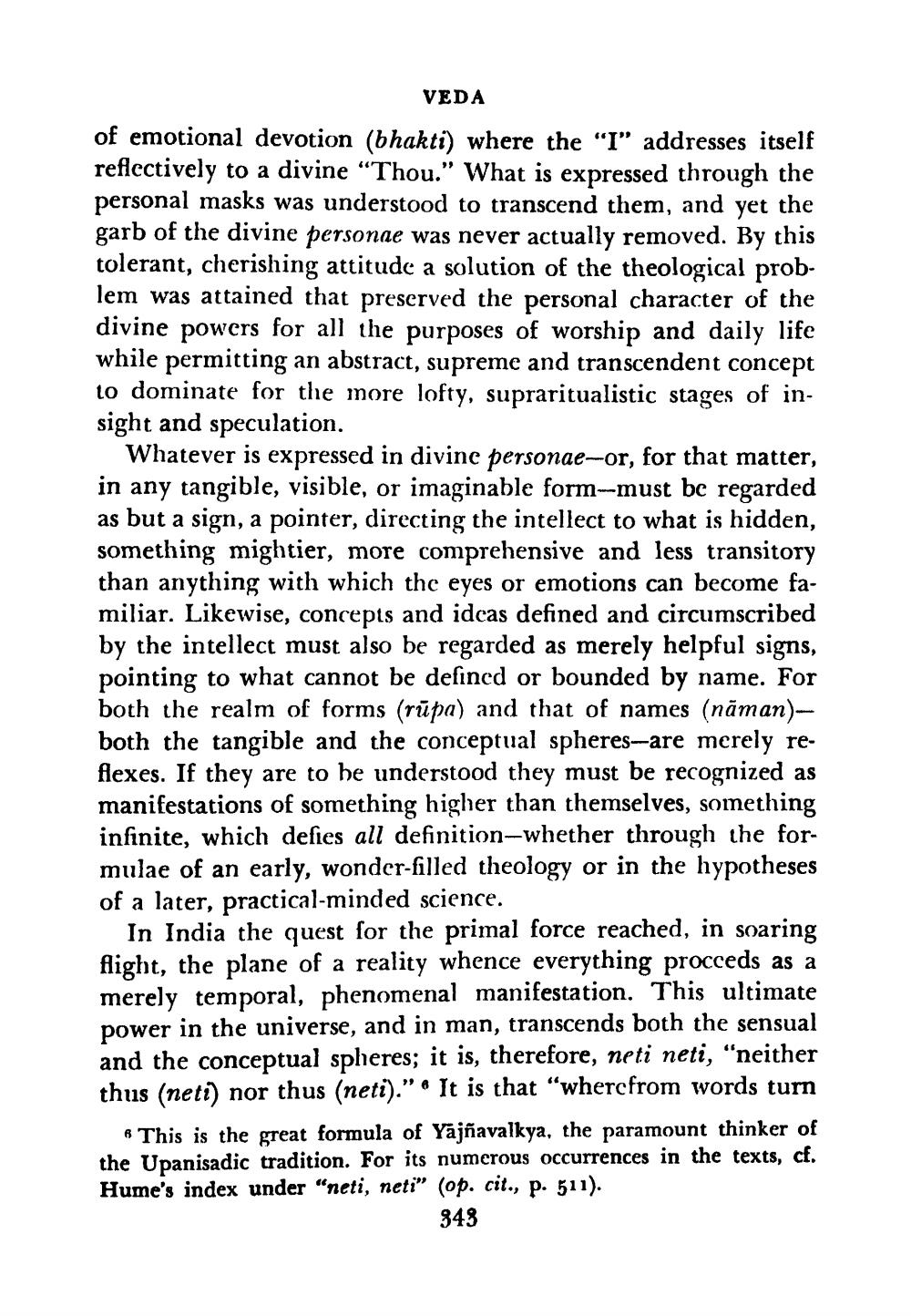________________
VEDA
of emotional devotion (bhakti) where the "I" addresses itself reflectively to a divine “Thou.” What is expressed through the personal masks was understood to transcend them, and yet the garb of the divine personae was never actually removed. By this tolerant, cherishing attitude a solution of the theological problem was attained that preserved the personal character of the divine powers for all the purposes of worship and daily life while permitting an abstract, supreme and transcendent concept to dominate for the more lofty, supraritualistic stages of insight and speculation.
Whatever is expressed in divine personae-or, for that matter, in any tangible, visible, or imaginable form--must be regarded as but a sign, a pointer, directing the intellect to what is hidden, something mightier, more comprehensive and less transitory than anything with which the eyes or emotions can become familiar. Likewise, concepts and ideas defined and circumscribed by the intellect must also be regarded as merely helpful signs, pointing to what cannot be defined or bounded by name. For both the realm of forms (rūpa) and that of names (nãman)both the tangible and the conceptual spheres--are merely reflexes. If they are to be understood they must be recognized as manifestations of something higher than themselves, something infinite, which defies all definition-whether through the formulae of an early, wonder-filled theology or in the hypotheses of a later, practical-minded science.
In India the quest for the primal force reached, in soaring flight, the plane of a reality whence everything procceds as a merely temporal, phenomenal manifestation. This ultimate power in the universe, and in man, transcends both the sensual and the conceptual spheres; it is, therefore, neti neti, “neither thus (neti) nor thus (neti).” • It is that “whercfrom words turn
* This is the great formula of Yājñavalkya, the paramount thinker of the Upanisadic tradition. For its numerous occurrences in the texts, cf. Hume's index under "neti, neti” (op. cit., p. 511).
349




